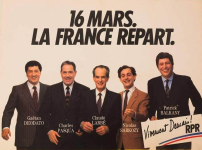I read a review of five books titled "
Unsinkable Paris" by Rachel Donadio in the January 16 issue of the New York Review of Books. I have not been to France in over 15 years and was kind of shocked by what she described as the LVMH-ification of Paris. Seems like nowhere can escape the corporate influences in our era, also mentioned is Kering - both huge contributors to the Notre Dame restoration.
But, it was still good to be "back" in Paris and remember it without some of the bad news the authors listed below bring to the reader.
The books she reviews are :
Impossible City: Paris in the 21st Century
by Simon Kuper
PublicAffairs, 258 pp., $30.00
Paris in Turmoil: A City Between Past and Future
by Éric Hazan, translated from the French by David Fernbach
Verso, 102 pp., $19.95
Paris Is Not Dead: Surviving Hypergentrification in the City of Light
by Cole Stangler
New Press, 282 pp., $27.99
V13: Chronicle of a Trial
by Emmanuel Carrère, translated from the French by John Lambert, with a postscript by Grégoire Leménager
Farrar, Straus and Giroux, 304 pp., $29.00
The Zone: An Alternative History of Paris
by Justinien Tribillon
Verso, 204 pp., $29.95
In the decade I’ve lived here, Paris has become a more global and more dynamic city, enlivened by an infusion of restless cosmopolitans, many of them Anglophone. Some, like the novelist Rachel Cusk, are creative-class refugees from Brexit; others are wealthy and in search of a certain je ne sais quoi. The next Trump presidency will likely send many more to Paris, which remains a first-world escape fantasy, although it is not tax-friendly for the rich. (For that, there’s Portugal.) Inventive non-French chefs have made the city’s food scene livelier and more open to foreign influences. (For better or worse, Paris seems to have reached peak matcha latte.) Rents are rising but regulated. Airbnbs are also regulated: homeowners can rent short-term for a maximum of 120 days a year, so Paris has not gone the way of Rome or Barcelona, where the middle class has been priced out by tourists and digital nomads.
...
Enormous urban renewal plans are also underway. As part of the “Grand Paris” infrastructure project, sixty-eight new metro stops outside central Paris are expected to open by 2030, linking the center of the city to its surrounding banlieues and better connecting the banlieues to one another. It is the most ambitious redesign of the city since Baron Haussmann razed its old narrow streets to make way for wide boulevards in the nineteenth century. In time for the Olympics, Line 14 of the metro was extended south to Orly airport and north to Seine-Saint-Denis, connecting them to central Paris with shiny new cars.
Among the biggest changes to Paris in recent years is that fabulously wealthy luxury holding companies—chief among them Bernard Arnault’s Louis Vuitton Moët Hennessy (LVMH) and François Pinault’s Kering—have become important participants in France’s previously state-dominated cultural scene. Arnault is one of the richest men in the world and one of the most powerful in France. LVMH contributed €200 million (and Kering €100 million) to the €900 million pledged for the restoration of Notre-Dame. In 2014 the Louis Vuitton Foundation opened its exhibition space designed by Frank Gehry in the Bois de Boulogne, where it can mount shows rivaling those of France’s great public museums.
C'est la vie, eh?
Added: Just to note that this isn't just a LVMH bashing, she also tells of the movement of finance and banking from London to Paris due to Brexit and other large scale changes due to political, social, and cultural forces.


